While the concept of sandbox games is hardly new, dating back to the late 80s and the likes of Elite and Sim City, what makes the Mount & Blade series unique is the activity its devs (TaleWorlds Entertainment) decided to focus on. Lots of sandbox games had been made about city building or (sea/space) ship trading, but at no point did a dev say "why don't we go for medieval combat and commanding big honking armies from 3rd person instead."
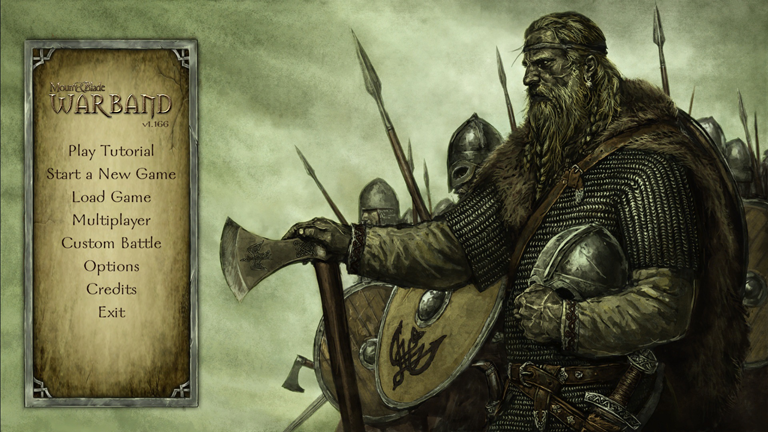
To date, there have been six games in the series, but only three are good and only two of those are worth playing. All six games revolve around the same core mechanics, with only minor differences (or improvements) to set them apart.
The Premise
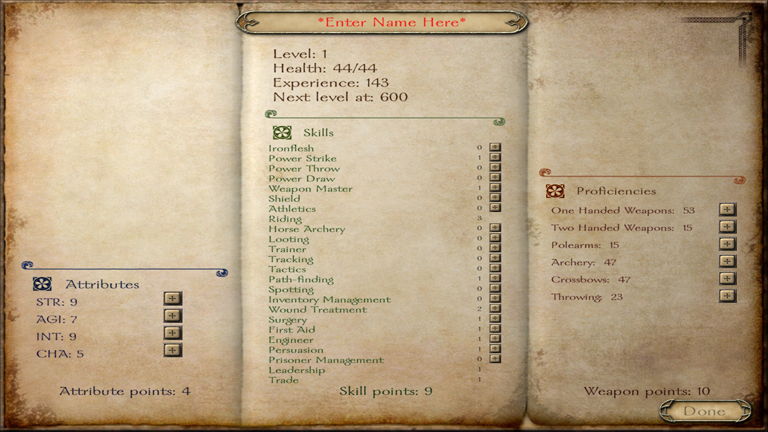
At its core, Mount & Blade is a medieval combat sim with a lot of extra stuff tacked on. You control your character through WASD and mouse and issue commands to your army through the function keys (F1 – F4). Your character has 4 attributes (Strength, Agility, Intelligence and Charisma), 24 skills (which affect the damage of your melee blows, the efficiency of healing between battles, or horsemanship, to name a few), and 6 proficiencies (one for each type of weapon you can wield).
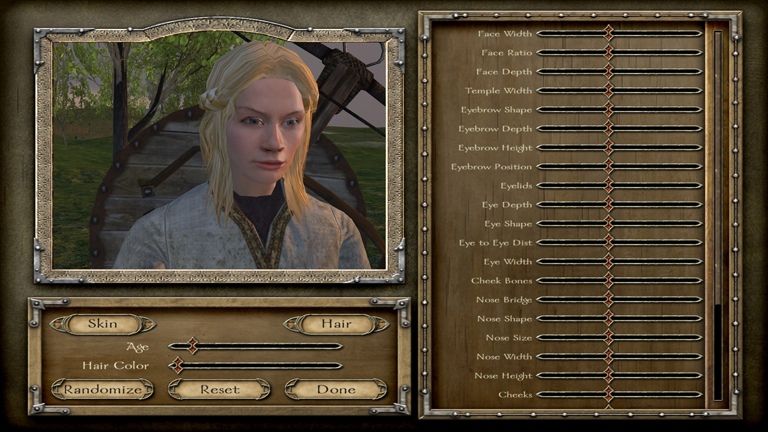
Your character is made through answering a few questions about your past (which affect your stats), investing points in your attributes, skills and proficiencies and going through a utilitarian (but extensive) face generator. Once you have your character, you are put through a brief tutorial that shows you how to fight, recruit party members, and use the quest log and then are tossed onto a vast world map and left to your own devices.
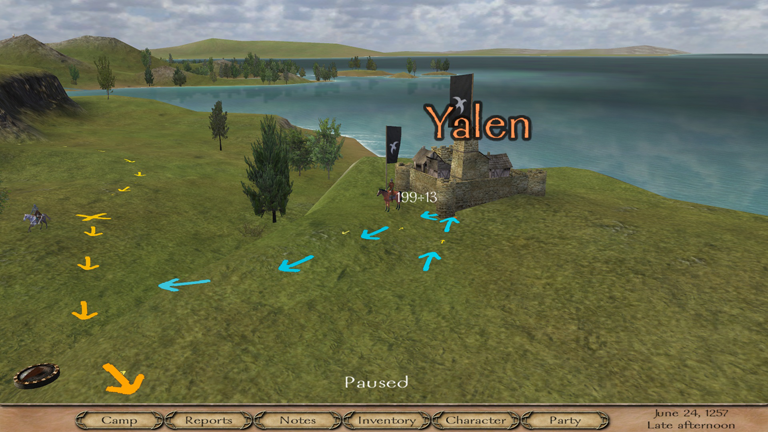
Most of the games have no set goals (a few of the mods, With Fire and Sword, Viking Conquest and Bannerlord being the exceptions) – just activities and quests you can undertake, which are generated randomly as the game progresses. If you are good at setting goals for yourself and following them through, you will love it. If you prefer the game to walk you through a plot – probably less so.
As for Things To Do, there's a decent pool to choose from, but not so extensive that you won't eventually start re-doing the same activities over and over again. In the end, as with any procedurally generated game, your enjoyment will depend on how much you like the core mechanics (mainly the combat engine – that's what the game does best). There are recurring quests like clearing bandit lairs, negotiating hostage situations, defeating x-amount of looters, or escorting caravans to their destination. As for long-term goals, that's entirely up to you. You could wander around on your own, taking on odd jobs; become a bandit and raid villages and caravans, while evading the law; establish a mercenary army, buy businesses and trade, earn money on the tournament circuit or – form your own kingdom and take over the world, eliminating all other factions in the process... All are valid choices and all are allowed.
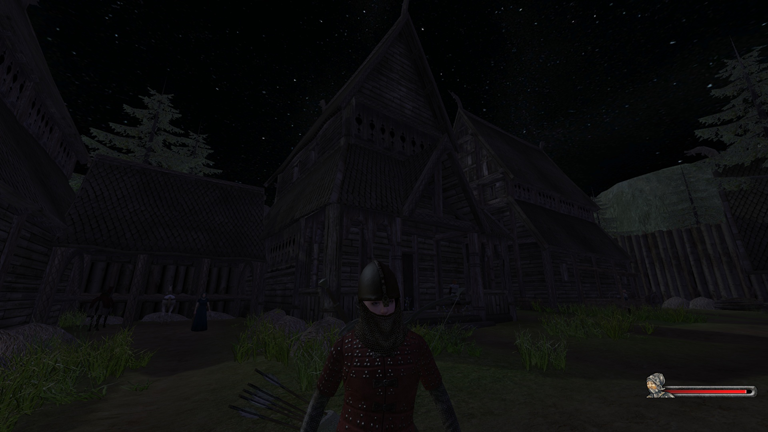
The original games run on a simple graphics engine that closely resembles Operation Flashpoint's (though prettier), but have excellent animation, with characters and horses moving fluidly, in a lifelike manner that suggests someone spent a long time paying attention to anatomy and proper range of motion. Bannerlord, on the other hand, is simply gorgeous, with graphics and effects on par with any big-budget game.
The Incarnations
Mount & Blade
The first entry in the series was the most revolutionary, but Warband rendered it obsolete. There's no real reason to play it, unless it supports a mod you really like (of which there are a fair few).
Warband
The sequel is like the original but better. It boasts slightly improved graphics, a new faction (the Sarranid Sultanate), companions (unique characters that do not die when defeated), interactions with nobility (including courtship and marriage), the ability to start your own kingdom and multiplayer. If you are new to Mount & Blade, this is the game to start with.
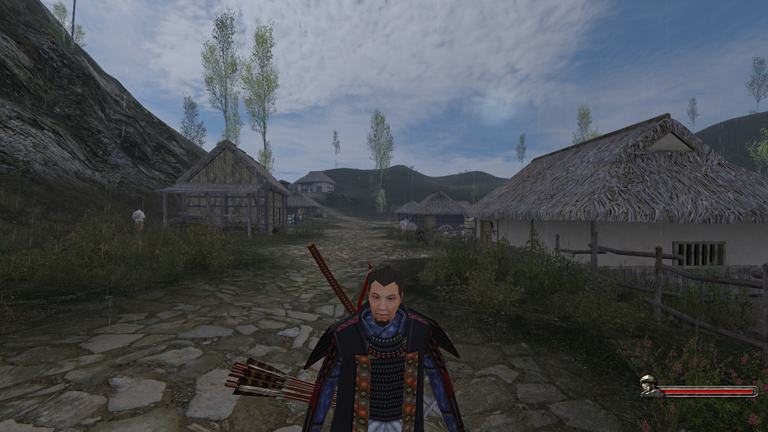
Warband also has the biggest mod scene, with some really great total-conversion mods worth playing (I highly recommend Gekokujo, for feudal Japan and samurai, Warsword Conquest, for Warhammer goodness, and Prophesy of Pendor, for a fully-realized, original world with a lot of fun, extra content like unique items, hidden quests, and thousand-strong armies to sink your teeth into).
Unless you want to know their particular faults, you can skip the next three and go straight to Bannerlord.
Napoleonic Wars
More mod-turned-paid-product than brand new game, Napoleonic Wars has two strikes against it in my book. First, it's multiplayer-only, eschewing the traditional Mount & Blade open-world joy; and second, it introduces guns, which sorta ruin the gameplay (as guns tend to do). If you're fond of the time-period and have people to play against, it's not a bad mod as mods go. But if you want a complete, single-player gaming experience, Napoleonic Wars is kinda a Waterloo.
Viking Conquest
Another paid mod, the upside of Viking Conquest is that it was made by a passionate team. The downside, however, is that it's the same team that made Brytenwalda (a Warband mod set in a Britain just shrugging off Roman rule, which had great aspirations but lackluster execution). Viking Conquest runs poorly, hogging more resources than Warband for no justifiable return, is riddled with bugs, and shifts the balance of combat from the individual to strength of numbers, turning large battles into boring, extensive slogs. The artwork and visual assets are nicely done, but – on the whole – this should have never been sold as a finished product.
With Fire & Sword
The third (and last) Mount & Blade mod turned paid release, With Fire & Sword shifts the action to 16th century eastern Europe, during the Swedish Deluge, recreating the setting and characters of book one in Henryk Sienkiewicz's Trilogy. Unfortunately, what it does not recreate is fun. While the setting is interesting and the execution serviceable, the "game" pairs the poor performance of Viking Conquest with the attrition warfare of Napoleonic Wars for a really dour twofer.
Oh, and it doesn't let you create female characters, which is – at once – historically accurate (not many 16th century ladies went charging into battle decked out in plate mail) and dumb (I hear women play computer games nowadays... next thing you know, they'll be getting the vote! <harrumph>).
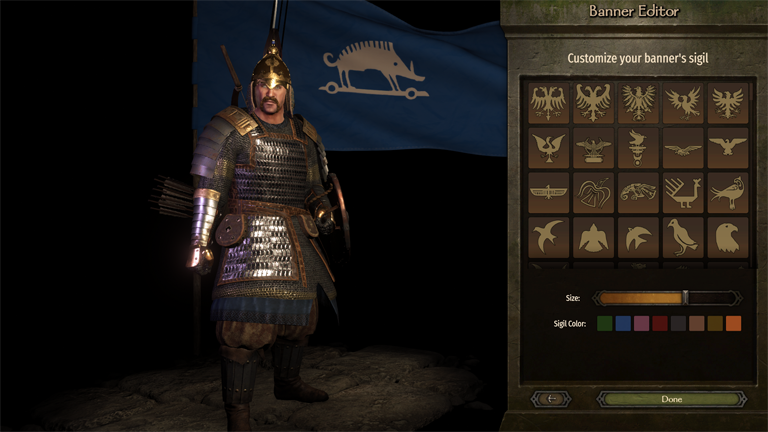
Bannerlord (Mount & Blade II)
What Warband did to original Mount & Blade, Bannerlord does to Warband. With deeper gameplay that includes more extensive party/clan/city/kingdom management, an indepth crafting system, fully interactive sieges, two fully realized plots and a slew of new Things To Do (all running on a breathtaking new graphics engine), Bannerlord is a marked improvement on Warband in every respect and a Great Game in its own right to boot.
My only niggle with it is that the breathtaking graphics require a moderately beefy rig to run smoothly. But if you can afford the upgrade (or already have a beefy rig handy) the experience is well worth the expense.
The Summation
While the Mount & Blade series is made for a very specific audience (part 3rd person action junkies, part strategy nerds and with enough wherewithal to play a game that doesn't really encourage commitment) the fun thing about it is that you can engage the games as little or as much as you like. Unlike other sandboxes (like X4 Foundations) which eventually force you to employ all of their mechanics, the Mount & Blade games are happy to let you idle along doing as much (or as little) as you feel like.
If you like the premise and setting of these games, there is simply nothing else like them. A few games may offer you an insight into medieval combat (like Kingdom Come Deliverance), and a few might let you run a kingdom, but no other game will let you do it all (and more besides) in one go.
Warband Mod List:
-
Gekokujo – a great technical achievement, Gekokujo recreates the entirety of feudal Japan and the simplicity of the Japanese aesthetic all the while keeping its size down to a measly 1Gb; and while I do not particularly like the inclusion of guns and the mod only slightly expands Warband mechanics, it does a great job of remaining historically accurate while including little popular fiction nods (keep an eye out for Kenshin's Sakabato, for one);
-
Warsword Conquest – a little portly, at 2.64 Gb, and very much unfinished and unrefined, Conquest is nonetheless as thorough a Warhammer conversion as you will find; every board game faction is included, along with some recognizable names (givens like Felix and Gotrek, sure, but also Thrud the Barbarian, Eleanor de Quenelles, Florin D'artaud and many, many others); the mod also introduces some neat mechanics like spells and unique items, a plethora of visual assets and, <sigh>, more guns;
-
Prophesy of Pendor – my favorite mod to date, Pendor's creators not only made a world of their very own, with its own factions, history and mythology, but went so far as to include many improvements, including achievements (perks) you can earn during the course of the game (which actually affect your stats), randomly spawned marauding armies, minor factions and the most hilarious anti-cheating mechanism I've seen in years (the game will warn you twice if you try the more blatant battle cheats and then award you ... the Cheater achievement);
Pig Recommends:
-
Kingdom of Heaven (movie) – because it's a Ridley Scott vehicle, you know it'll be grandstanding, cloyingly sentimental and more than a little vain, but – I still like it; in many ways, it paralells Kingdom Come's story (son of a blacksmith turned knight), but also gives a unique insight into the Crusades (which, on the whole, had as much to do with business as conviction or faith) and has my second-favorite acting performance (Edward Norton) by an actor whose face is never revealed; go on, give it a watch; "God wills it!"
-
The Last Duel (movie) – because it's a Ridley Scott vehicle— wait, we'd done that gag already... but, yeah, same faults, same shaky historical accuracy, but – still like it; in places, it doesn't make for pleasant viewing, but then – a lot of medieval life wasn't all that pleasant; it sheds a lot of light onto court favoritism and backroom politics of the day and culminates in some of the best knightly combat I have ever seen; despite being a commercial flop, it is well worth a watch (but probably just the one);
